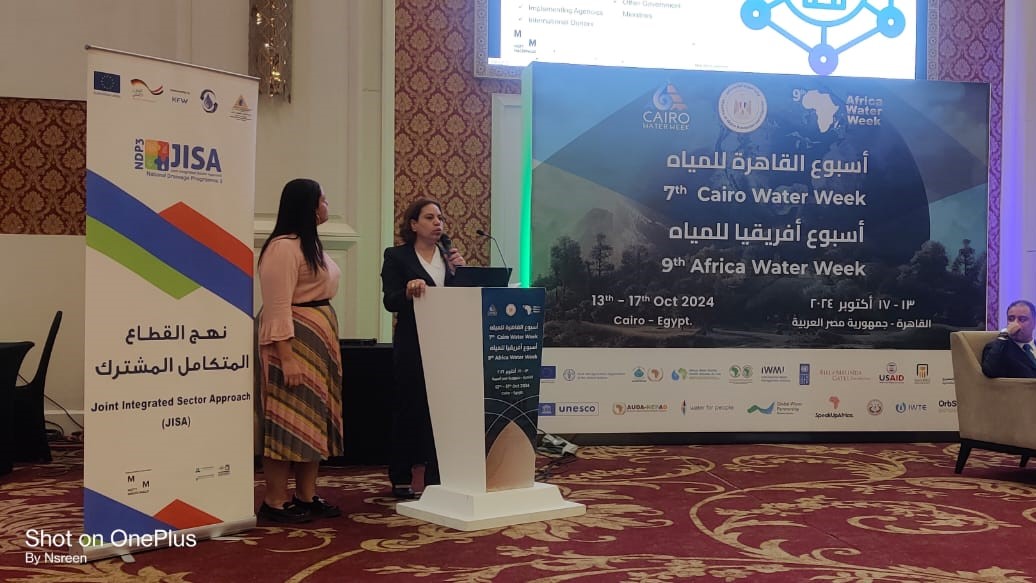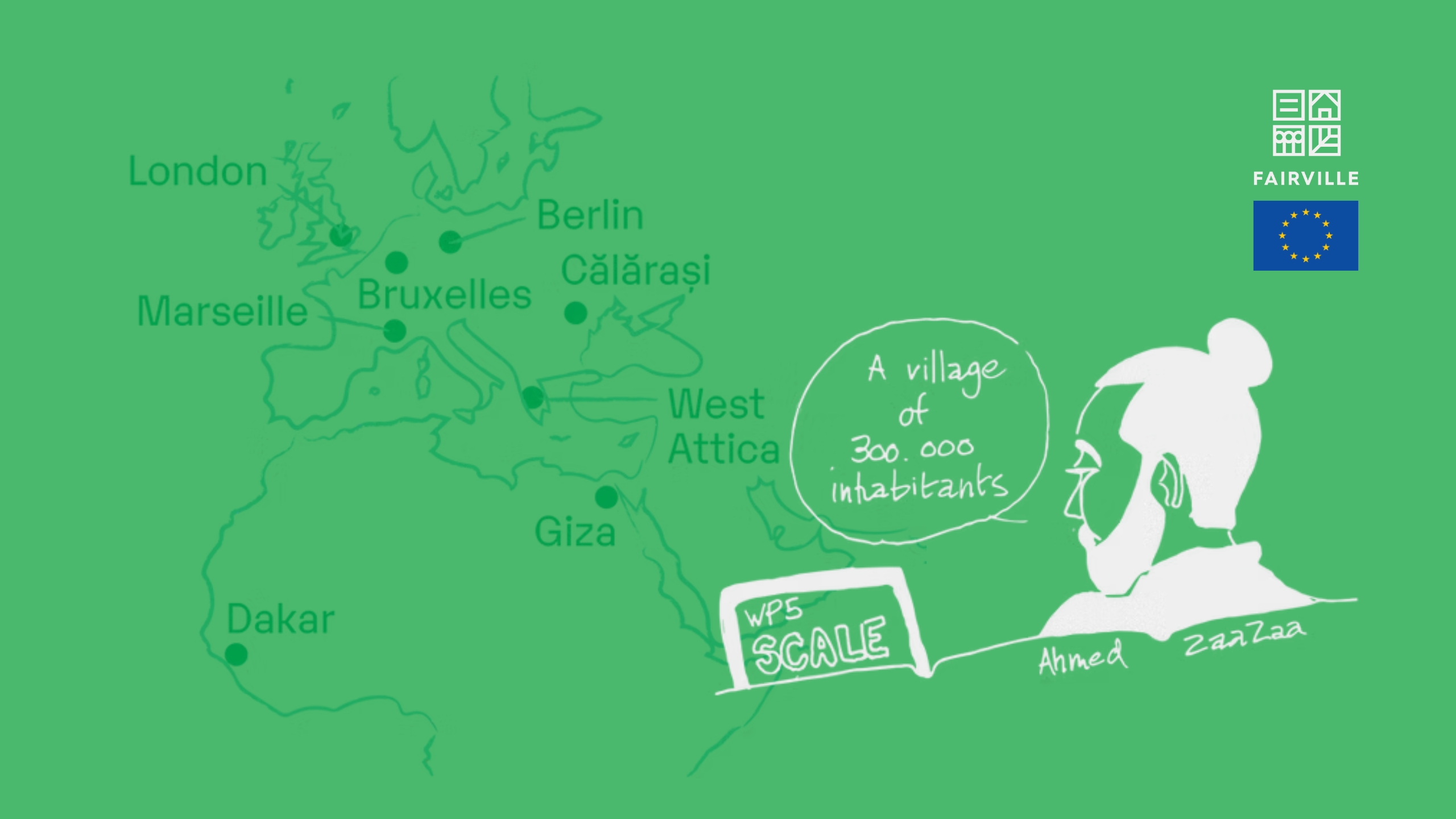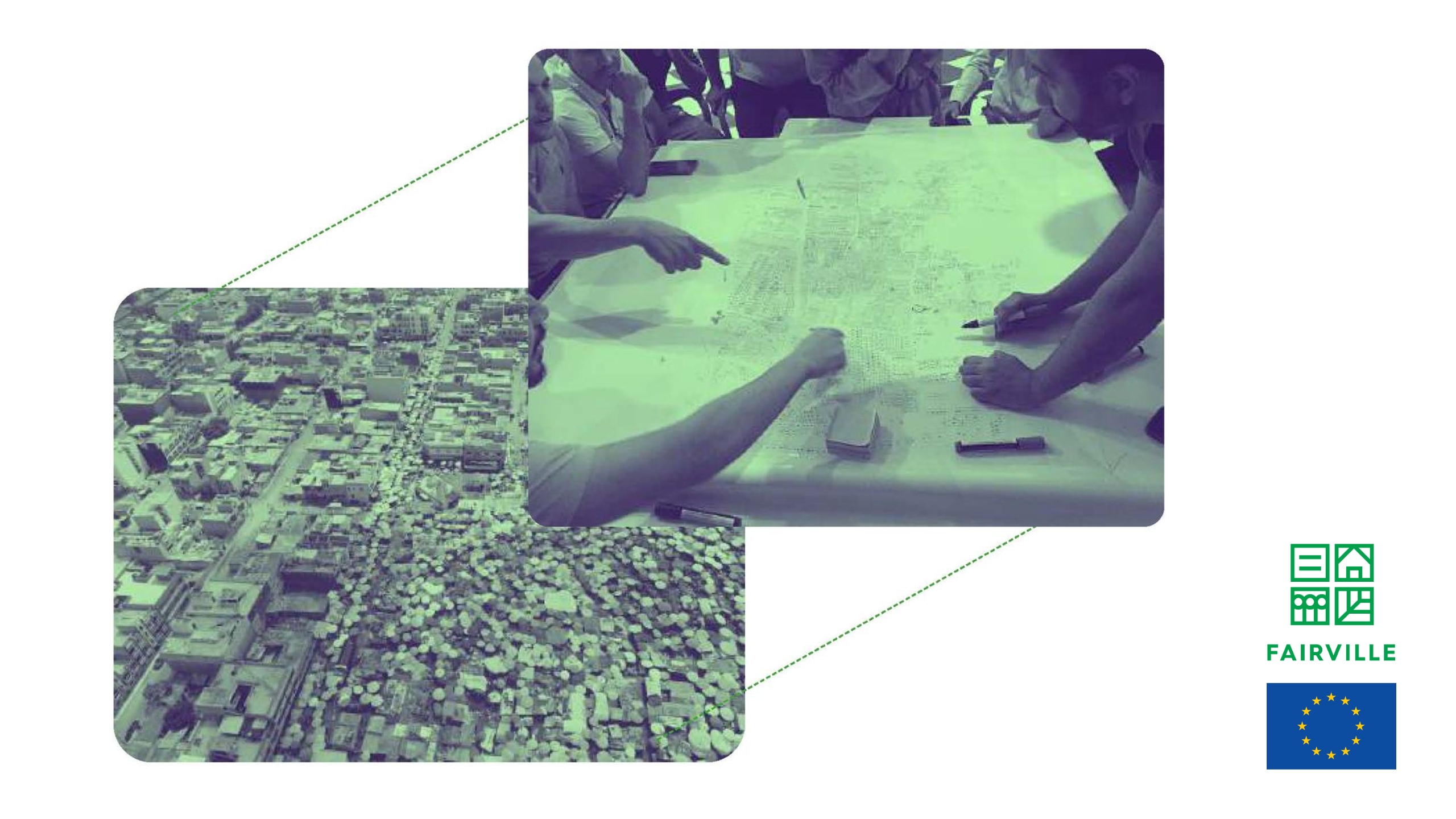The 8th Africa Water Week & 7th Cairo Water Week (CWW) (13-17 October 2024) shed light on the nexus of integrated water resources management (IWRM), climate impact, and community resilience. In response to this call, North South Consultants Exchange (NSCE) spoke on communication principles for institutional capacity building and active community engagement to feed into the joint integrated sector approach (JISA) of the National Drainage Programme (NDP)3.
Water, agriculture, and food security are key vulnerabilities of Egypt to climate-related challenges. The ecological footprint of Egypt should be taken very seriously as it is disproportionately affected by global warming. Located in one of the most water-scare regions, the landscape of Egypt is predominantly desert and merely around 7.6% of the land is inhabited and cultivated. The water needs are responded to by the Nile for 85%. This high dependency on the Nile for water renders Egypt prone to climate change due to the reduction of rainfalls and the effect of sea level rise.
Against the backdrop of rising temperatures, population growth, desertification, decreasing rainfall, salient evaporation, drought conditions, and increasing water scarcity, the water demand is projected to rise, especially considering the agricultural sector with a current consumption of around 80% of freshwater resources. Agriculture is responsible for an estimated 57% of livelihoods of the population with direct employment of 26% of the labour force.
The importance of resilience and climate mitigation and adaptation comes to the fore, especially considering the water and agriculture sectors. The Climate Risk Profile: Egypt by The World Bank Group concludes that:
The country faces increasing challenges to agriculture, loss of livelihoods and food security, which are expected to be further compounded by climate stressors.
Taking up the cause to respond to these climate-related challenges, NSCE is committed to fostering active community engagement, institutional capacity building, and monitoring environmental and social standards (ESS). Exemplary thereof is the work of NSCE implemented for NDP3, led by the technical assistant Mott MacDonald B.V., Arnhem, the Netherlands.
Project: National Drainage Programme (NDP) IIIThe NDP III/JISA Session at CWW 2024 was convened by the Egyptian Public Authority for Drainage Projects (EPADP) of the Ministry of Water Resources and Irrigation (MWRI) on day 5 (October 17) from 09:30 to 11:00 at Nile Ritz Carlton in Cairo. As a key partner of the CWW, Egypt implements NDP3 over 100,000 hectares of agricultural land, to sustain and improve agricultural productivity and farmer incomes, and to enhance water and food security in country. Within JISA, NDP3 develops a state-of-the art unified investment planning and monitoring system (UIPMS) that aims to optimise the impact of national and international investments in the sector, worth billions of Euros.
Co-financed by the EU and the German Government through the KfW Development Bank, also the co-conveners of the session, EPADP/MWRI presented NDP3 as a top investment priority in the operationalisation of JISA. Knowledge transfer being a key value of NSCE, our team was invited to speak on building resilient communities through communication and active community engagement.
In the framework of NDP3, NSCE aims to enhance and improve the EPADP’s interfaces with other MWRI units such as the Irrigation Department (ID) and the Mechanical and Electrical Department (MED) as well as the Ministry of Agriculture and Land Reclamation (MALR). It foresees institutional reinforcement, capacity building and training for the planning sector and the major eight contracting entities within the MWRI. Improving the participation of farmers in planning, supervision of works and maintenance of drainage infrastructure and increasing the involvement of the private sector in the supply of drainage pipes are also key to the working package of NSCE on stakeholder engagement enhancement.
At the NDP3/JISA Session, Ms. Manal Mounir, Officer in Charge of the NSCE Governance and Environment Team, highlighted the results of the communication plan of the project. Increasing the outreach to stakeholders on NDP3 activities, sharing knowledge and lessons learnt, setting up dialogue platforms, building awareness as well as gender equality promotion were identified as key objectives of the communication plan.
In the context of NDP3, NSCE was commissioned to implement “Training and Capacity Strengthening in Gender Mainstreaming of EPADP Staff and Collector Users Associations (CUAs)”. Through a four-pronged approach, NSCE developed process policies for gender mainstreaming, gender sensitization training for EPADP staff and CUAs members, Training of Trainers (ToT) and gender awareness workshops for EPADPs staff and CUAs. During the session at CWW 2024, Ms. Manal Mounir highlighted the importance of the objective of raising awareness on gender-responsive leadership and participation.





